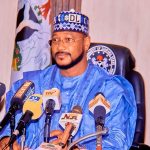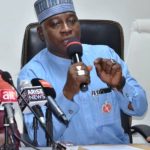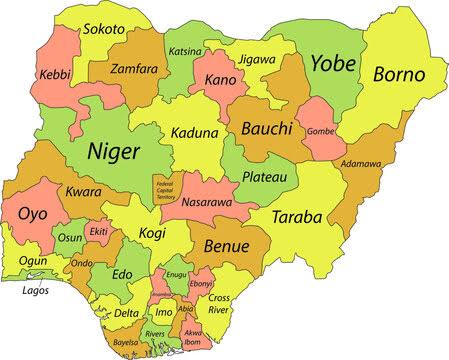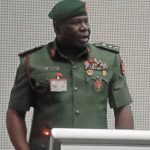By Abu Shekara
It recalls 2015, almost complete with the same actors and the circumstances also match. If indeed, history has a penchant for repeating itself, history may as well be living up to that reputation in Nigerian politics and the nation may not have wait long to witness that.
To most watchers of politics in the country, the scenario is recurring so soon that it is more of current affairs than history. Barely a decade ago, a coalition of Nigeria’s political elite, gathering from diverse backgrounds and across partisan divides, were united by one and one object alone: There was a government and the political party that controlled it that must be removed, if the nation was to be saved and preserved as an entity that was worth the name. The signs were crystal clear, the danger was looming and obvious to virtually all citizens in all parts of the country.
That ensemble of partisan platforms became the fraternity called the All Progressives Congress (APC). It bears the same name till today and in less than two presidential tenures, a similar wind is blowing again but APC is not in the front line. Rather ironically, the target of the gathering storm is the APC itself.
In a rather dramatic degeneration of character, last decade’s rallying point of the progressive forces’ match for change has metamorphosed to a symbol of all the evils, against which it provided the platform to resist: bad governance, insensitivity, impunity, despotism, nepotism and yes, insecurity and corruption, the latter two being the campaign pitch of APC’s “perfect” specimen and flag bearer, Muhammadu Buhari.
After the triumph of the “progressives” of 2015, half way into the first term of APC’s second consecutive President, Nigerians are unbelievably feeling nostalgic about the situation they rallied round the party to oppose. “Jiki Magayi” (he who feels it knows it) the title of a Hausa novel, actually written by John Umaru Tafida but generally used to describe conditions under Buhari, aptly captures the current mood of the people and what that will most likely motivate them to do, come the next elections in 2027.
The political atmosphere clearly indicates that matters will not be determined by chance. Already, a familiar scenario is emerging and
as in 2015, the sentiment of the masses will find a platform to crystallise into a force. Principal actors of the previous stage are being recast to lead the charge and Nigerians have not so soon forgotten their past roles.
Nasiru el-Rufa’i, former Governor of Kaduna State, Minister of the FCT in the past and DG, Bureau for Public Enterprises is a catalyst and one of the emerging forces in this new movement but so he was back in 2015. With the penchant for defying incumbent presidents, who he struggled to install, no sooner than matters of principle draws them apart, it is El-Rufa’i who engaged in early manoeuvres that pointed to the possibility that something was amiss.
El-Rufa’i was in the forefront of the agitation that established Buhari as President in 2015, only to oppose members of his kitchen cabinet, when in 2023, it appeared that the Presidency or elements at the behest of the Villa were intent on negating the principle of zoning, by which the APC presidential ticket should go to the South. And now, he is a prominent figure in the emerging coalition against President Bola Tinubu, a product of that very resistance.
The righteousness of El-Rufa’i’s political about-face could be adduced from the identity of his potential allies in the coalition: Atiku.Abubakar, Aminu Waziri Tambuwal, Rotimi Amaechi and several others, who like him, were also in the thick of the storm of 2015. The feeling of deja vu is catching on strong across Nigeria and the sheer number and calibre of citizens, who share the core principles of the movement lend it the spontaneity that would not be denied.
Ruling APC wish to explain away these matters arising. The coalition, they say, is dead on arrival but their responses to this state of affairs betray their true disposition; the panic, poacher style conscription into APC, of members of other parties, (who have more to fear from than love about the ruling party) indicates desperation, rather than strength.
Presidential and APC spokesmen describe the coalition as a bid to gain control of state resources. But that is as simplistic as it is pointless because state resources and political power are two sides of a coin; each one secures the other. The question is whether or not they are employed by those with whom they reside to advance the fortunes of the state. And the cause of the current contest of political blocks in Nigeria is the general feeling that power and the public resources are being invested towards anti-people ends.
It is a fact that the commonwealth and the people’s mandate have not only failed to improve but even worsened the condition of the people and thus, it is not a mere group of politicians but the entire citizenry that will seize power and resources and transfer them to a different set of managers to administer more appropriately for their common good. The coalition is therefore, only a means through which the Nigerian masses will achieve that end.
The strategy of inducing or coercing a few vulnerable political elite to join the APC in order to soar the ranks of the ruling party will fail against the people’s will, which is certain to prevail over all the king’s horses and all the king’s men.











